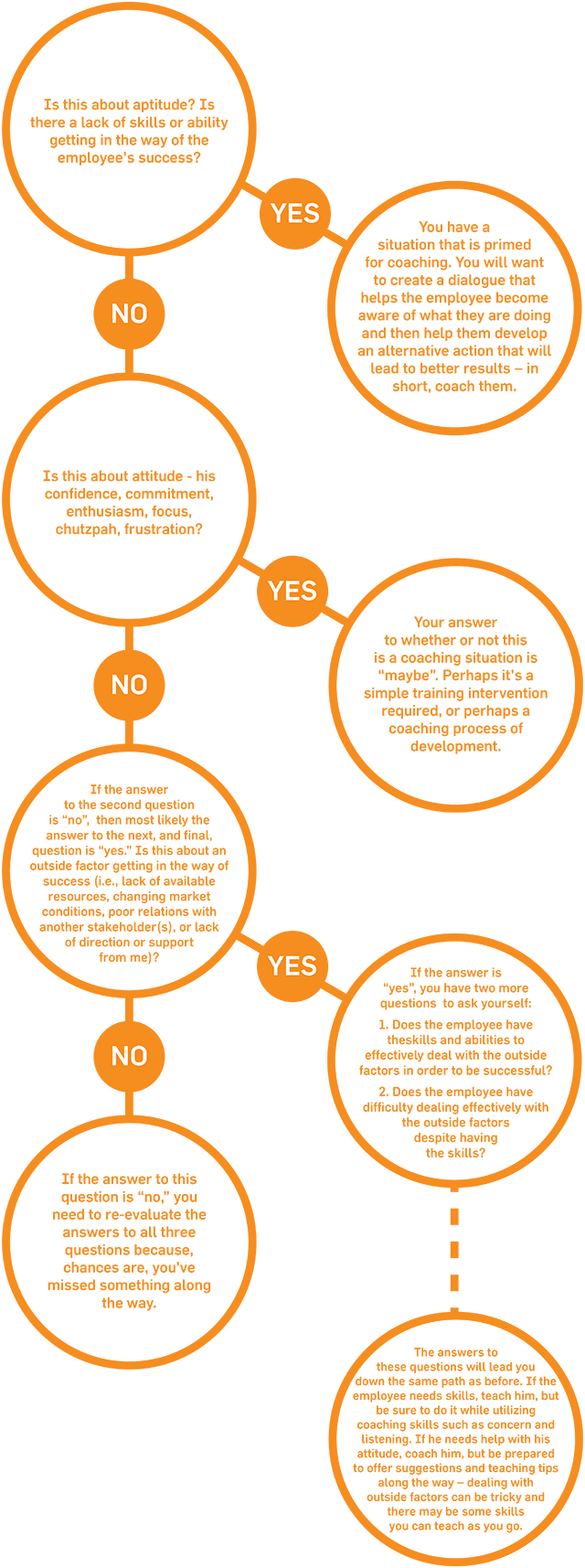Coaching is of course not always the right approach to take. If you have a new starter, then they will struggle to even know what goals/objectives to set for themselves and will need much more guidance. Equally with a very experienced member of staff, they will not appreciate entering into a coaching conversation for a task or objective that they feel they know how to work towards comfortably on their own. There are also times when you simply have to tell someone how you want something done. Be that due to time pressure, or the need for specific process. Coaching is a powerful approach to use with people looking to grow and develop, and also for helping people who feel stuck.
However, it’s not a catch-all technique for every situation. Imagine a manager who every time you asked them for advice sat you down and said “let’s have a coaching chat about that”. That may be the appropriate response on occasion, but a tiresome one if it was 100% of the time.
Coaching is a dialogue that leads to Awareness and Action. When an employee has the skills and ability to complete the task at hand, but for some reason is struggling with the confidence, focus, motivation, drive, or bandwidth to be at their best, coaching can help.
Employees typically struggle because one of three things is in their way:
Skills and Abilities
They currently lack the skill or ability to complete the task at hand; this relates to aptitude.
Themselves
They currently lack the motivation, focus, chutzpah, confidence, or commitment to complete the task at hand; this relates to attitude.
Outside Factors
They are currently being affected by things that are largely outside their control, such as not having the available resources, changing market conditions, ineffective vendors and partners (internal and external), or poor relationships with various stakeholders and colleagues.
Note: If an employee needs to develop specific skills and abilities, coaching is not the final answer. You don’t teach someone how to create a budget for the first time by asking him curious questions in an unattached manner. You teach someone a new skill by giving him the proper instructions or training for that particular task. If you tried to coach him/her, you would end up driving yourself crazy and your employee out the door.
That is not to say, however, that a coaching approach cannot be used to aid with skills development. It would simply be a process of assisting the coachee to set goals for their skills development and helping them to put a plan in place for that development along with a follow-up to check on their progression. The coaching approach can be used in almost any situation, but if the answers you are getting from an associate are very obviously ‘I don’t know what to do, or even how to answer your questions’ from the start, then staying in the coaching mode at that point could be wasting everybody’s time.
To that end, when determining whether coaching is the right tool to use in a certain situation, first ask yourself this question:

